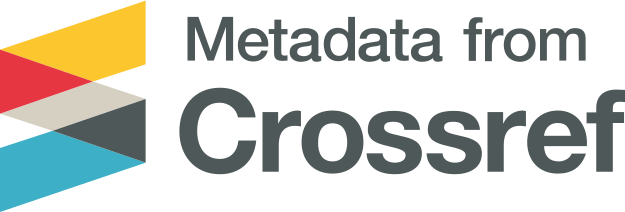Hubungan Substitusi Real Earning Management dan Accrual Earning Management terhadap Perilaku Pajak Agresif pada Perusahaan Kepemilikan Keluarga di Indonesia
DOI:
https://doi.org/10.35838/jrap.2022.009.01.08Keywords:
Real Earning Management, Accrual Earning Management, Perilaku Pajak Agresif, Kepemilikan KeluargaAbstract
ABSTRACT
This study looks at the effect of real earnings management (REM) and accrual earnings management (AEM) on tax aggressive behavior, and how the role of family companies on earnings management is applied to that relationship. The study was conducted on manufacturing companies during the period 2016 to 2019, with a total of 78 companies observing 312 company-years. With pool panel balance analysis, the research results show that in accordance with hypothesis 1 to hypothesis 5, that companies that do REM will tend to behave less aggressively than companies that do AEM, because there are no company limitations to do AEM, so companies that will do AEM tend to behave aggressive tax. In the test results in favor of family companies showing a tendency to aggressive behavior in Sari's research (2010). On the other hand, when family firms perform earnings management for tax purposes, they tend to switch to REM rather than AEM. These results contribute to earnings management behavior that is a substitute for accrual and real earnings management to aggressive tax behavior.
ABSTRAK
Penelitian ini melihat pengaruh real earning management serta accrual earning management pada perilaku pajak agresif, dan bagaimana peran perusahaan keluarga atas manajemen laba yang diterapkan entitas pada hubungan itu. Riset dilakukan pada perusahaan manufaktur selama periode 2016 hingga 2019, dengan total 78 perusahaan observasi 312 perusahaan-tahun. Dengan analisis pool panel balance, hasil penelitian menunjukkan sesuai dengan hipotesis 1 hingga hipotesis 5, bahwa perusahaan yang melakukan REM akan cenderung kurang berperilaku pajak agresif daripada perusahaan yang melakukan AEM, karena belum adanya keterbatasan perusahaan untuk melakukan AEM, sehingga perusahaan yang melakukan AEM cenderung akan berperilaku pajak agresif. Pada hasil pengujian di Perusahaan keluarga menampilkan kecenderungan perilaku pajak agresif mendukung penelitian Sari (2010). Sebaliknya ketika perusahaan keluarga melakukan manajemen laba untuk tujuan pajak cenderung akan beralih melakukan manajemen laba secara real daripada secara akrual. Hasil ini memberikan kontribusi atas perilaku manajemen laba yang bersifat substitusi atas real dan accrual earning management terhadap perilaku pajak agresif.
Downloads
References
Achleitner, Ann-Kristin and Guenther, Nina and Kaserer, Christoph and Saciliano, Gianfranco.(2014). “Real Earnings Management and Accrual-Based EarningsManagement in Family Firms”. European Accounting Review Forthcoming.Available at SSRN: http://ssrn.com/abstract=2383741
Armstrong, C.S., Blouin, J.L., Larcker, D.F., 2011. The incentives for tax planning. J. Account. Econ. 53, 391–441.
Barton, J., & Simko, P. J. (2002). The balance sheet as an earnings management constraint.The Accounting Review, p. 77, 1–27.
Becker, C.L., Defond, M.L., Jiambalvo, J. and Subramanyam, K.R. (1998). The Effect of Audit Quality on Earnings Management. Contemporary Accounting Research, 15(1), 1-24.
Chen, S., Chen, X., Cheng, Q., & Shevlin, T. (2010). Are family firms more tax aggressive than non-family firms?.Journal of Financial Economics 95, 41–61.
Chung, R., Firth, M. and Jeong, B.K. (2005). Earnings Management, Surplus Free Cash Flow, and External Monitoring. Journal of Business Research, 58, 766– 776.
Cohen, D.A., Dey, A. and Lys, T.Z. (2008) Real and Accrual-Based Earnings Management in the Pre- and Post-Sarbanes-Oxley Periods. The Accounting Review: May 2008, Vol. 83, No. 3, pp. 757-787
Cohen, D. A., & Zarowin, P. (2010). Accrual-based and real earnings management activities around seasoned equity offerings. Journal of Accounting and Economics, 50, 2–19.
Dechow, P., Sloan, R., & Sweeney, A., (1995). Detecting earnings management.The Accounting Review 70, 193–225.
Desai, M.A. & Dharmapala, D. (2006). Corporate tax avoidance and high-powered incentives.Journal of Financial Economics, 79, 145-179.
Dyreng, S., Hanlon, M., Maydew, E., (2008). Long-run corporate tax avoidance. Account. Rev. 83, 61–82.
Ge. W dan Kim, J.B. (2014). Real Earning Management and The Cost of New Corporate Bonds. Journal of Business Research 67, pp 641-647.
Graham, J.R., (2003). Taxes and corporate finance: a review. Rev. Fin. Stud. 16, 1075–1129.
Graham, J., Harvey, R. and Rajgopal, S. (2005). The Economic Implications of Corporate Financial Reporting. The Accounting Review, 80 (4), 1101-24
Hanlon, M & Heitzman, S. (2010). A review of tax research.Journal of Accounting and Economics 50, 127-178.
Hirst, E. (1994). Auditors' sensitivity to earnings management. Contemporary Accounting Research 11 (Fall): 405-22.
Jensen, M., and W. Meckling. (1976). Theory of the firm: Managerial behavior, agency costs and ownership structure. Journal of Financial Economics 3 (October)- 305-60.
Kothari, S.P., Leone, A.J. and Wasley, C.E. (2005). Performance Matched Discretionary Accrual Measures. Journal of Accounting and Economics, 39, 163–197.
Manzon, G. & Plesko, G. (2002).The relation between financial and tax reporting measures of income.Tax Law Review, 55, 175-214.
Masri, I & Martani D.(2014). Tax avoidance behaviour towards the cost of debt. Int. J. Trade and Global Markets, Vol. 7, No. 3, 235-249.
Masri, I. (2018). The Role of Corporate Governance In The Relationships of Family Company With Real Earnings Management. Jurnal Akuntansi. Volume XXII, Bo. 01, Januari 2018: 51-67.
Mills, L., M. Erickson, and E. Maydew. (1998). Investments in tax planning. Journal of the American Taxation Association 20 (1): 1–20.
Peraturan Pemerintah No.77 tahun 2013. tentang “Penurunan Tarif Pajak Penghasilan Bagi Wajib Pajak Badan Dalam Negeri yang Berbentuk Perseroan Terbuka”.
Rego, S. (2003). Tax avoidance activities of U.S. multinational corporations. Contemporary Accounting Research 20 (4): 805–833.
Roychowdhury, S. (2006). Earnings Management through Real Activities Manipulation. Journal of Accounting and Economics, 42 (3), 335-370.
Sari, D.K. (2010). Ownership Characteristics, Corporate Governance, and Tax Aggressiveness. The 3rd Accounting and The 2ndDotoral Colloquium, Bridging the Gap between Theory, Research and Practice : IFRS Convergence and Application Faculty of Economics Universitas IndonesiaBali-Indonesia, 27 - 28 Oktober 2010.
Slemrod, J., (2004). The economics of corporate tax selfishness. National Tax Journal 57, 877–899
Slemrod, J., Yitzhaki, S., (2002). Tax avoidance, evasion, and administration. In: Auerbach, A., Feldstein, M. (Eds.), Handbook of Public Economics, vol. 3. Elsevier Science, Amsterdam, pp. 1423–1470.
UU No.36 tahun 2008.Tentang perubahan keempat atas Undang-Undang No.7 tahun 1983 tentang Pajak Penghasilan.
Watts, R. L., and J. L. Zimmerman. (1983). Agency problems, auditing, and the theory of the firm: Some evidence. Journal of Law and Economics 26 (October): 613-33.
Zamri, N., Rahman, R.A. dan Isa, N.S.M .(2013). The Impact of Leverage on Real Earning Management. International Conference on Economics and Business Research, ICEBR, 2013. Procedia Economics and Finance 7(2013). Pp.86-95.
Zang, A. Y. (2012). Evidence on the tradeoff between real activities manipulation and accrual-based earnings management. The Accounting Review, 87(2), 675–70
Downloads
Published
Issue
Section
License
Authors who publish with this journal agree to the following terms:
- Authors retain copyright and grant the journal right of first publication with the work simultaneously licensed under a Creative Commons Attribution-ShareAlike 4.0 International License that allows others to share the work with an acknowledgement of the works authorship and initial publication in this journal.
- Authors are able to enter into separate, additional contractual arrangements for the non-exclusive distribution of the journals published version of the work (e.g., post it to an institutional repository or publish it in a book), with an acknowledgement of its initial publication in this journal.
- Authors are permitted and encouraged to post their work online (e.g., in institutional repositories or on their website) prior to and during the submission process, as it can lead to productive exchanges, as well as earlier and greater citation of published work (See The Effect of Open Access).














